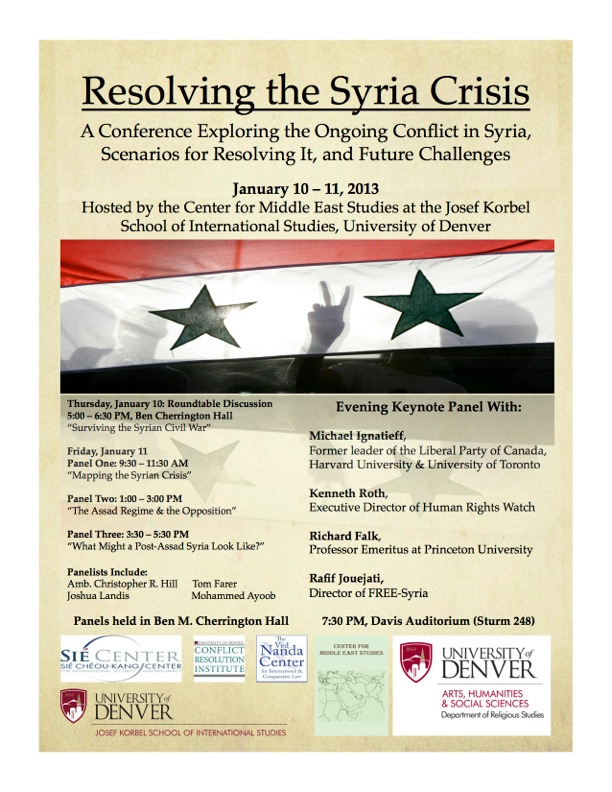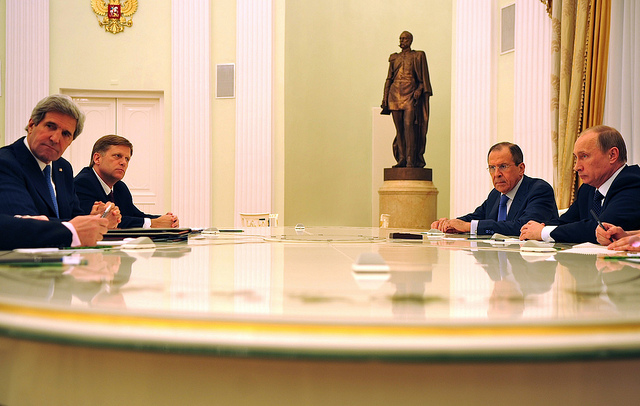When US Secretary of State John Kerry arrived in Jerusalem last week, Benjamin Netanyahu welcomed him with a characteristically grumpy lecture on why continued Palestinian incitement meant Israel must be allowed to retain control of its own security. According to Netanyahu, incitement is at the root of the conflict and must be addressed before Israel can consider further risks for peace: “Even if there is some minimal commitment to recognize the Jewish state, there’s still no guarantee that the incitement against us would change,” Netanyahu said. “We saw what happened when we closed our eyes and evacuated settlements. We need a foothold in the territory, plus security arrangements that will ensure that the territory won’t be handed over to hostile elements.”

Understanding how this Gaza crooner and UNWRA Good Will Ambassador for Peace is poised to wreck the peace process requires unpacking the presumed outline of Secretary of State John Kerry’s emerging “framework deal”; which appears to be yet another retread of the same failed formula created in Oslo 20+ years ago. From what I have pieced together (here, here and here); the proposed framework, like Oslo, has three main components: significant future concessions by both parties to demonstrate mutual commitment, interim arrangements to govern territorial power-sharing and a list of items to be determined when confidence has increased. Again, according to Netanyahu the framework will include things that both parties like, some stuff they will really dislike, some cash for institution building and, if my hunch is correct, the reason the Arab Idol will bring the whole thing crashing down.
The biggest part of the deal will be the initial concessions each will make to seal their commitment to the framework; these appear to be the twin Kahunas of Palestinian state-hood and refugees. Israel will concede to the creation of an independent Palestinian state within borders that roughly comprise the 1949 armistice lines (otherwise known as the “1967 boundaries”), augmented with mutually agreed land-swaps. In exchange, the Palestinians will affirm Israel as “the Jewish State,” which means no return of Palestinian refugees to the lands they fled in 1948. Issues like Jerusalem, and most likely the Jordan Valley, appear to be slated for deferral until the parties have the needed confidence to address them.
However, because this will be an interim deal and because Israel has security issues, not the least of which is Palestinian incitement, the borders that Netanyahu will accept will be phased in gradually; most likely “commensurate with the assumption of responsibility for public order and internal security by the Palestinian Police force.” And as with Oslo it is likely that “Israel will continue to carry the responsibility for defending against external threats, as well as the responsibility for overall security of Israelis” during the interim period.
That means that when Mohammad Assaf dons his shiny suit, plops a kefiyeh around his neck and sends his love to Acre and Haifa, he is not reconstructing memories of a glorious past to affirm the national project in the present but will quite literally be undermining the peace agreement. Moreover, he will also explain why Israel will be unable to compromise their security by turning over territory to “hostile elements.”
As with Oslo, Kerry’s framework will fail by making Israeli concessions contingent on Palestinian compliance and voiding the agreement of what Dorina Bekoe (2008) terms “mutual vulnerability.” Like deal between rival firms, the terms of payment and delivery must be clear and have concomitant sanctions on both sides if the contract is to be fulfilled (Williamson, 1985). In accepting Israel as a Jewish state, Abbas will be making an advance payment on the promise of Israeli delivery of sovereign boundaries along the 1949 armistice line. However, the security provisions will grant Israel license to delay the hand-over in the event of any act of spoiler violence or inappropriate political cartoon (of which there are many). More likely, this not-so-new framework will result in an utterly predictable cycle of foot-dragging, mutual recriminations and crisis renegotiations over the scope of the interim deal. Kerry, and most likely his successor, will be on call to fly out and calm nerves, pony up funds to train more Palestinian police and tack on more and more security provisions until Abbas is overthrown or is forced to abandon the agreement.
No one is disputing that fact that Israel has security concerns. However, the Palestinians also have implementation concerns. A framework agreement that fails to provide reassurances for both these insecurity dilemmas will neither build confidence nor prevent defection. On the contrary, the contingent structure of the exchange will heighten each side’s insecurities, encourage delay and most likely spurn an inexorable return to violence.
And that is nothing to sing about.





